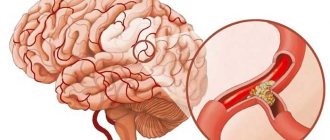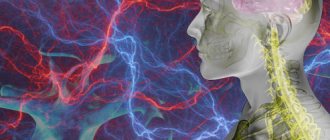The human brain is very lazy. Yes, he has been little studied, he has a lot of untapped abilities, but he is lazy. Therefore, it will not be possible to get it to work at full capacity for eight hours in a row.
During an intense thought process, the brain uses 25% of the energy consumed by the entire body, that is, a lot.
Therefore, the self-defense mechanism is triggered - rest and do not overexert yourself. You need to learn how to properly distribute the load, alternate between activity and rest, interesting and boring.
So how can you make your brain work?
Five Second Rule
A simple rule on how to teach your brain to work was invented by American CNN commentator, TV presenter and motivational speaker Mel Robbins. Her book, The Five Second Rule, describes in detail many life situations in which this rule has helped people.
Its effectiveness has been appreciated by business people, including Better Humans author Dave Wentworth.
Once you decide to do something, you have exactly five seconds to start doing it. Then the brain will find some small things that need to be done right now. Wipe the keyboard, water the flowers or wash the dishes, but don’t work.
Tell your brain you'll get to work when you count "5, 4, 3, 2, 1"! This works for two reasons:
1. The final point, count 1, calls for action. I just want to say “Start”!
2. It’s unpleasant to make promises to yourself and not keep them, so you have to do it.
This scheme is applicable in many life situations. Count from five to one in a stressful situation - and you no longer want to yell at a naughty child.
If you need to do an unpleasant thing, start acting in five seconds. It's time to get rid of the accumulated “tails”.
Myth: Chess is the best sport for the brain
In fact, the brain works better during challenging physical training. It promotes the production of hormones responsible for memory, assimilation of new skills and preservation of neurons. For example, scientists conducted an experiment in which athletes took part. During the break between training sessions, they were asked to solve problems. At the same time, participants in the first group did stretching exercises, and the second group rested. The results showed that the resting participants were unable to cope with the task.
However, it is very important to avoid risks to brain health when exercising. For example, rugby players often suffer from brain problems because they suffer head injuries during almost every game.
The head of Rospotrebnadzor compared the situation with coronavirus in Russia and in the world
Khamatova told why in recent years Galina Volchek was offended by her
How to make a bright and comfortable floor pouf: follow simple instructions
Don't rely only on chess and crosswords. Swim, dance and do yoga to develop your entire body.
Rule of 25 minutes work and 5 minutes rest
To activate the brain, Italian student Francesco Cirillo proposed the Pomodoro method back in the 1980s. The method is named after the tomato-shaped kitchen timer that Cirillo used.
Persuade your brain to work for just 25 minutes. It’s not even half an hour, but just a few minutes! “Okay,” the brain thinks, and turns on. And then either you do at least part of the useful, but possibly complex work in 25 minutes, or you immerse yourself in the process so that a couple of hours will pass unnoticed.
This approach will help improve performance.
After every 25-minute pomodoro, take a five-minute break and begin a new amount of work. After every fourth pomodoro, take a long break of 15-30 minutes. Taking breaks will make your brain more productive.
Work and don't get distracted. And if a thought about some other matter appears in your head, then just write it down and continue working.
The method quickly became popular due to its low technology: just a timer and a piece of paper with a pencil. The ticking of the timer reminds you that work is in full swing, and the bell notifies you of a break (hello to school years).
Myth: Drawing won't help you become a math genius.
What natural phenomena did Nostradamus warn Russians about in 2021?
Easily open a bottle of medicine: only pharmacists know about the trick
Research: why is it difficult for a man to get a job in a number of “female” professions?
You should try drawing every time you can't solve a difficult problem or make a difficult decision. Drawing activates both hemispheres of the brain, and the correct solution is found much faster. Integrated research has shown that children understand mathematics better and remember information faster if they illustrate new material in their notebooks.
Try drawing for 10-20 minutes using your left hand (if you are right-handed). Try to do this every day, and in just a month you will notice a positive effect.
Make quality breaks
How to improve brain function with breaks? Agree with the main body about what kind of rest you will get after fruitful work.
“If you don't see the benefits of taking breaks, you might not be good at taking them,” says Carson Tate, author of Keep It Simple: Harnessing the Power of Your Own Productivity Style.
Break 5-15 minutes. Tate believes that the best activity for a short break is physical activity. You can even just walk up the stairs. Maura Thomas, author of Work Without Walls, says that sometimes the best thing to do is do nothing.
Taking a five-minute break to get distracted and daydream is the perfect way to relax.
When doing so, it can be helpful to look at something green—according to Harvard Business Review research, “green microbreaks” increase productivity and concentration.
Half an hour break. Maura Thomas and Laura Stack (author of The Exhaustion Cure) recommend spending 30 minutes on active movements. The best option is brisk walking. Carson Tate also notes the benefits of talking with other people, but not about work.
60 minutes of rest, according to Tate, should be used to change the environment and leave the workplace.
Coach Deb Lee also recommends decluttering your mind by writing out your thoughts - this will help you completely step back from work during your break and plan what you'll do next when you get back to work.
High-quality ones will help you be more productive and improve brain function.
Methods to improve brain function
Every adult wants to stimulate brain activity and improve memory. The brain has an amazing ability - plasticity, which allows you to improve mental abilities. Plasticity suggests, and has been shown repeatedly in research, that stimulating and training certain brain centers can improve the activity of existing functions.
Adjusting your diet
Everyday nutrition (a seemingly trivial matter) affects the activity of the brain and its abilities. The condition of this important organ depends on a sufficient amount of glucose. The basis of proper nutrition is breakfast; its exclusion leads to poorer concentration throughout the day. In addition, it is good to consume sufficient amounts of antioxidants, which protect tissues from free radical damage and improve learning ability. You can provide your body with antioxidants by eating fruits and vegetables. Foods containing choline are also important for brain function. Choline accelerates the formation of acetylcholine, an important transmitter of nerve impulses. Its deficiency is associated with Alzheimer's disease and other memory disorders. The largest amount of choline contains:
- egg yolks;
- liver;
- legumes;
- peanut;
- grain crops;
- leafy vegetables;
- yeast.
Cereal sprouts are also a good source of lecithin, an equally important substance for the brain.
The following foods to improve brain function:
- Blueberry. It not only improves vision, but also regulates blood sugar levels, improves concentration and brain activity. According to scientists, just 200 g of blueberries will increase brain function by as much as 20%.
- Unroasted cocoa beans. Cocoa beans contain theobromine and caffeine. Theobromine is a substance that stimulates the central nervous system, improves concentration, and lowers blood pressure. Cocoa also contains important neurotransmitters or their precursors - dopamine, anandamide, arginine, tryptophan, phenylethylamine. These are substances that create a good mood, associated with a feeling of happiness.
Listen to Mozart
Music can help support brain function in some cases. Listening to Mozart's compositions causes the activity of 3 brain genes involved in the transmission of nerve impulses. The exact effect of listening to music is unknown, and the improvement may not necessarily be experienced by every person. But research shows that listening to harmonious music helps you relax, unwind, and therefore develop your thinking.
Train your working memory
Working memory is the part of memory that allows you to store information for a very short time, useful for forming thoughts. Working memory can be expanded with proper training.
Working memory training is not only important, but also enjoyable. It promotes the release of dopamine, which is responsible for a sense of well-being and energy. Proven and traditional memory training methods include playing a musical instrument, writing, and playing chess.
Regeneration and rest
Proper drinking regime is one of the most important principles for achieving maximum functioning of the body and nervous system. Dehydration causes fatigue, bad mood, and learning difficulties. Drinking enough water is critical for the functioning of the entire body, including. brain
Sufficient sleep is the next principle for improving nervous activity and thinking ability. Scientists have discovered that one night without good sleep can cause long-term imbalance in the body. Allowing the body to suffer from lack of sleep in the long term does not guarantee good brain function. In addition to the production of stress hormones, lack of sleep increases the risk of developing civilizational diseases such as diabetes and cardiovascular diseases.
Physical state
Physical exercise has a beneficial effect not only on the body, but also on the brain. Half an hour of walking 3 times a week significantly improves concentration, learning, and abstract thinking skills. The reason for the improvement is an increase in the supply of oxygen in the brain, dilation of blood vessels, and improved blood circulation. Physical activity also supports the growth of new neurons.
Strengthening the connection between the hemispheres of the brain
Exercises to improve brain function are, first of all, the cooperation of the left and right hemispheres. This will help significantly improve creativity and concentration, memory, and increase brain potential.
One popular and fun exercise to increase the number of connections between areas in the brain is juggling. A creative trigger for creative processes in the brain is any change in regular activities. Try changing your usual route to work, changing the activities you do in your free time, eliminating any stereotypes (for example, use your non-dominant hand when brushing your teeth).
Gymnastics to connect the hemispheres uses simple symbols containing crossing (as in the body, where the right hemisphere controls the left half of the body, the left - the right). We are talking about a lying figure eight or the letter X, which can be drawn on paper in the air. The movements should be accompanied by eyes or eye turns in a figure eight shape. This not only stimulates the mind, but also eliminates eye fatigue that comes from working at the computer for a long time.
Drink coffee or tea
The next factor influencing brain activity is caffeine. It can be introduced into the body with the help of coffee, tea, and tablets sold in pharmacies. The advantage is effectiveness in nervous activity. But there is also a drawback: if this stimulant is used regularly, the body gets used to it, therefore, the substance becomes less effective.
You can try guarana, a natural source of caffeine. The positive aspect of its use is greater efficiency and long-term impact. Guarana contains more caffeine than coffee.
Caffeine should be avoided by people at risk of cardiovascular disease or sleep disorders.
Eat protein
Consuming high-quality protein is an important factor in proper brain function. The protein contains the amino acid tyrosine, which promotes the formation of nerve carriers - dopamine, norepinephrine, adrenaline.
Tyrosine is also part of over-the-counter medications, but their use should be checked with your doctor as they may affect the production of thyroid hormones.
However, complex proteins do not have this risk, so it is advisable to consume high-quality proteins not only for growth and maintenance of muscle mass, but also to stimulate brain activity.
Release dopamine during routine work
The first delight and interest in the new job wears off and a period of stagnation sets in. For different people this period varies, be it six months or five years, but such a period will come. Why does this happen and how to increase brain productivity?
This is inherent in nature in a part of the brain called the “striatum.” The pleasure of exploring something new leads to the release of dopamine.
All business content in a convenient format. Interviews, cases, life hacks of the corporation. world - in our telegram channel. Join us!
This system of brain functioning is observed even in children at an early age: a new toy captivates the child, and the child does not let it out of his hands for a day, a week. But then he finds a new toy. And not at all because this toy is better.
The thing is that it's new.
University of North Carolina professor Daniel Cable also experienced dissatisfaction with his job, although he understood the importance of teaching students. A diagnosis of cancer prompted Cable to rethink his work and life. He realized that thousands of people are grateful to him, and this is something to be proud of.
When it seems to the brain that there has been no change or something new for too long, it says: “You’re better than this, this kind of work is not for you.”
Professor Daniel Cable, in a column for Fast Company, talks about three things that will make the brain produce dopamine even during boring work.
1. Play to your strengths. Think about what is unique about you and how it could benefit you. When the professor began to use his strength - humor - he began to enjoy his work again.
2. Experiment. Stepping out of your comfort zone is important. Learn and do something new, even within the same position, take on diverse projects whenever possible.
For example, Daniel Cable began creating new curriculums instead of teaching the same course after course.
3. Use purpose. Finally, identify the impact you're making, Cable says. Correctly defined goals will help you not to lose interest.
Understanding the meaning of your work will add motivation. Not “why do I do this at all,” but “why am I doing this?”
Develop Emotional Intelligence
When we are upset, stressed or angry, resistance between two systems begins in the brain. This internal struggle prevents us from concentrating on a specific action, since the mind is busy resolving negative emotions, and a lot of energy is spent on this. But any emotional reactions can be controlled and managed. To do this, you need to develop emotional intelligence. In the free online course “Emotional Intelligence” you can see detailed instructions with which you will learn to understand your emotions.
Warren Buffett's 5/25 Rule
Warren Buffett is an American entrepreneur and investor with a net worth of $84.9 billion. He knows exactly how to achieve what he wants. Buffett advises writing down 25 of your goals and highlighting five of them.
And go straight to these top 5, without being distracted by other things, hobbies, opportunities. The rule is applicable in work planning, career building, family, creativity, in all areas.
Give your brain the mindset that until the five main goals/tasks/to-dos are completed, the others simply do not exist. This will help you not miss opportunities, not waste time, and activate your brain in pursuit of achievements.
Unachieved goals create stress and guilt; they depress you and prevent you from moving on.
Why doesn't the brain think?
The brain is located in the cranium. It is protected from other organs and tissues by the blood-brain barrier. This is a protective layer through which infection, toxins and other damaging substances do not penetrate. Blood vessels and nerve trunks approach the brain. The following are the reasons why inhibition occurs due to dysfunction of these structures, combined with a deterioration in mental function:
- insufficient supply of nutrients, vitamins, microelements, minerals for normal neuronal metabolism;
- hypoxia, that is, oxygen starvation of brain tissue with the risk of damage;
- pinching, inflammation, damage to nerve trunks;
- slow metabolism;
- ischemic vascular disease of the central nervous system;
- chronic fatigue, lack of sleep;
- frequent stress, overexcitability, nervousness;
- severe dehydration.
After identifying the damaging factor, treatment begins. It is not enough to eliminate only the root cause; an integrated approach is required. Therapy methods are selected by a neurologist, cardiologist, therapist, psychotherapist. If treatment is not promptly addressed, the condition will gradually worsen. In addition to chronic fatigue and memory loss, a person may experience systemic diseases. For example, ischemic disease, neuralgia.
Ingavirin is a popular antiviral drug known for its high effectiveness in fighting viruses. It has many analogues, so if the medicine is not suitable for the patient due to certain circumstances, it will not be difficult to find a suitable medicine. Read more in the article: “ingavirin: list of cheap analogues.”











